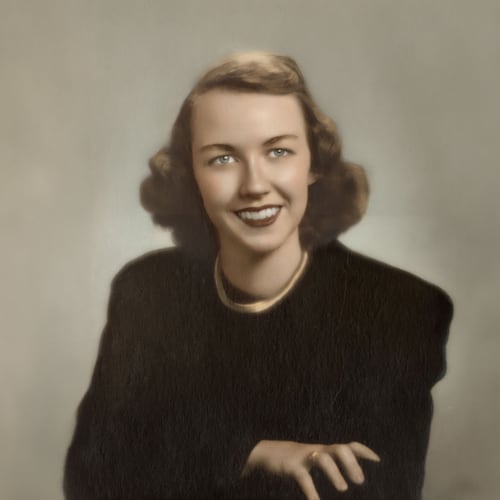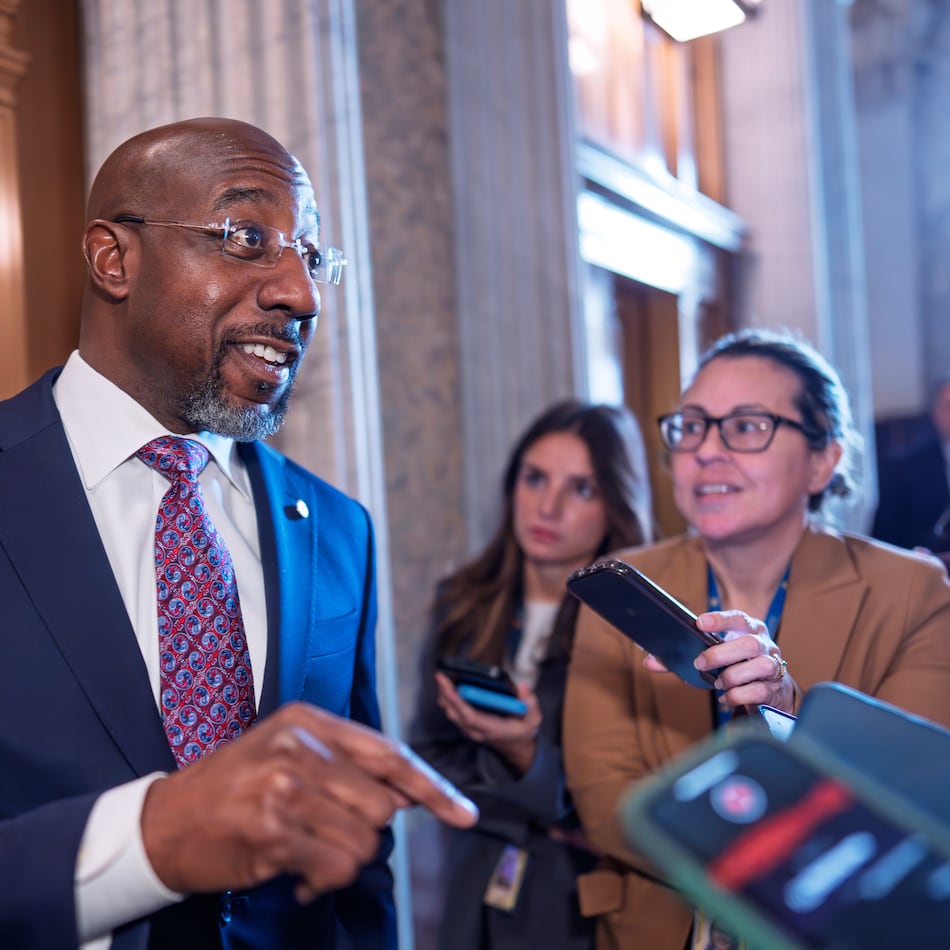In its seventh year, the annual South Fulton Arts (SFA) Filmer series pairs five Atlanta filmmakers with artists, musicians or creative innovators to produce short documentary portraits. The resulting documentaries will soon be screened at the Plaza and Academy theatres.
This year’s documentaries include: “Beyond the Script” by Dr. Arshley Emile about the Academy Theatre and its history of activism and inclusion; “Say Yes to Destiny” by Jonathan Banks on Alice Lovelace, a poet, organizer and founder of ArtsXchange; “Karla” by Elisee Junior St. Preux about Karla Harris, a jazz vocalist; “Kiara, Portrait of a Printmaker” by Will Feagins about Kiara Gilbert, a printmaker focused on Black queer histories; and “Nzzy’s Ark” by Ethan Payne about Nzzy Nekay, a multidisciplinary artist.
The Atlanta Journal-Constitution spoke to the filmmakers to discuss their films and futures.
Credit: Courtesy of Elisee Junior St. Preux
Credit: Courtesy of Elisee Junior St. Preux
Elisee Junior St. Preux
In the dreamy opening scenes of “Karla,” jazz vocalist Karla Harris is pictured in front of a billowing white drape covering a sunlit window. She is leaning down to mentor a young girl viewers soon come to understand is her as a child. Filmmaker Elisee Junior St. Preux bookends and sprinkles his film with this imagery.
“When I first met Karla, she had a very reminiscent, nostalgic feel to her, and that’s right in line with my style,” he said. “I call myself the nostalgia renderer.”
Throughout the film, Karla recounts her story of rediscovering jazz music later in life after having lost touch with her musical passion. Infusing the film with musicality was natural for St. Preux who, before becoming a self-taught filmmaker after college, had spent his life in concert bands.
“I kind of brought all of that music with me when I came into filmmaking,” he said. “It’s always been embedded in my stories.” Karla was his “perfect match” for the filmer series.
St. Preux is the program manager for the Writer’s Room of Georgia with Trilith Institute and is currently finishing his first feature film. The film, which he shot in Haiti, centers on mental health and father-son relationships. He recently received a postproduction grant for the feature from Warner Bros. Discovery, which comes with a first-look deal with HBO Max.
Dr. Ashley Emile
Before starting Timberhouse Films, Dr. Arshley Emile was an educator in Florida for 12 years. When he was attempting to write his doctorate dissertation on the suspension rates of Black boys in middle school, he realized the story would be better told through film.
He had no background in filmmaking, but began incorporating cameras into his classroom curriculum to teach his students — and himself — the mechanics. He learned more skills through “YouTube University,” he jokes, and self-funded his first documentary “Changing the Narrative,” which explored systemic racism.
His students, who watched his early passion bloom, challenged him to pursue film. He and his wife, his producer, took a leap of faith three years ago and moved their family to Atlanta where they had heard the film business was burgeoning. He has been working in film ever since.
Emile chose to shoot his Filmer series documentary “Beyond the Script” about the Academy Theatre. Founded in Atlanta in 1956, it is one of the longest-running theater companies in Georgia, was the first in the South to be racially integrated and has a storied history in activist theater. “Beyond the Script” focuses on the vision of Academy founder Frank Wittow, who believed theater has the power to spur social change.
Emile is also currently shooting a docudrama about Eric Garner, the African American man killed in Staten Island by a New York City police officer in 2014. Emile’s son plays young Garner. Emile plans to shop the film on the indie circuit.
Jonathan Banks
“When I saw Alice, it was a no brainer,” said filmmaker Jonathan Banks about his documentary film’s subject, Alice Lovelace.
Lovelace is a poet, educator, community organizer and activist. She is the founder of ArtsXchange, a community cultural center in East Point and the lead organizer for the U.S. Social Forum, a gathering of social justice activists.
“As soon as I saw her name I was like, I want to help tell her story,” Banks said. “People need to know who she is … It was just one of those passion projects that I felt was very serendipitous.”
“Say Yes to Destiny” paints a portrait of Lovelace as an impactful figure who, for four-decades, has been a leader in Atlanta arts communities. Helping immortalize her legacy was one of Banks’ motivations.
“I think documentation is crucial. Storytelling lives,” Banks said. “It lives on beyond the people who tell the story … she might inspire someone to do work in their own community. It is one of those things that just keeps the momentum going.”
Another of Banks’ documentaries, “Young Kings,” on which he partnered with Emile, is currently being aired on PBS. That film documents Black cycle culture on the streets of Atlanta.
Will Feagins
Will Feagins has developed a niche for documenting creatives. In his documentary series “Our Voices, Our Lives,” Feagins interviews Atlanta artists. For another, “City of Kings: Atlanta,” he documents the history of Atlanta’s graffiti artists. In “The Tin Lady,” he shadows a dancing street busker. Capturing artists is important to Feagins.
“I think given the current climate it’s important for people to be able to take away the humanity in it — in the artists,” he said, “to be open and try to see their point of view and the importance of the information that they share through their art.”
For this year’s SFA filmer series, Feagins chose to document, Kiara Gilbert, a printmaker in her 20s who focuses on the narratives told about Black queer communities historically. Feagins’ portrait of Gilbert reveals her as a young printmaker who ruminates deeply about her work. Each decision she makes, from the material to the processes, holds meaning. Feagins’ said he was “fascinated” by her processes.
The filmmaker by passion, graphic designer by day job, was excited to participate in SFA’s filmer series for a second time.
“Participating in the project has exposed my art to a wider range of people,” he said.
Ethan Payne
In Ethan Payne’s documentary short “Nzzy’s Ark,” viewers are guided by multidisciplinary artist Nzzy Nekay through an empty Southern home and into a dry concrete swimming pool. It is unclear if the home is hers, but regardless, seems metaphorical as the subject’s “ark” — a “vessel of liberation” she calls it. As an artist she craves to “create something that keeps us afloat.”
Nekay, with her long fingernails and fiery hair color, oozes personality as she talks about a spirit of revolution inside her and the imagination that has helped her survive her life in the South. The filmmaker, who said he “loves telling stories about the complicated and beautiful American South,” has a knack for portraiture and landscape.
“Nzzy’s Ark” is just one of about a dozen recent shorts Payne has created about people in the South, including an indie festival-winning short “We Travel” he shot for two months in northern Mississippi with his filmmaking partner Brian Foster.
If you go
Two screenings will take place: the first at Plaza Theatre (1049 Ponce De Leon Ave. NE, Atlanta) at 7 p.m Wednesday.; the second at Academy Theatre (599 U.S. 19, Hapeville, Ga. 30354) at 7 p.m. March 6. Tickets are free at southfultonarts.org.
About the Author
Keep Reading
The Latest
Featured





